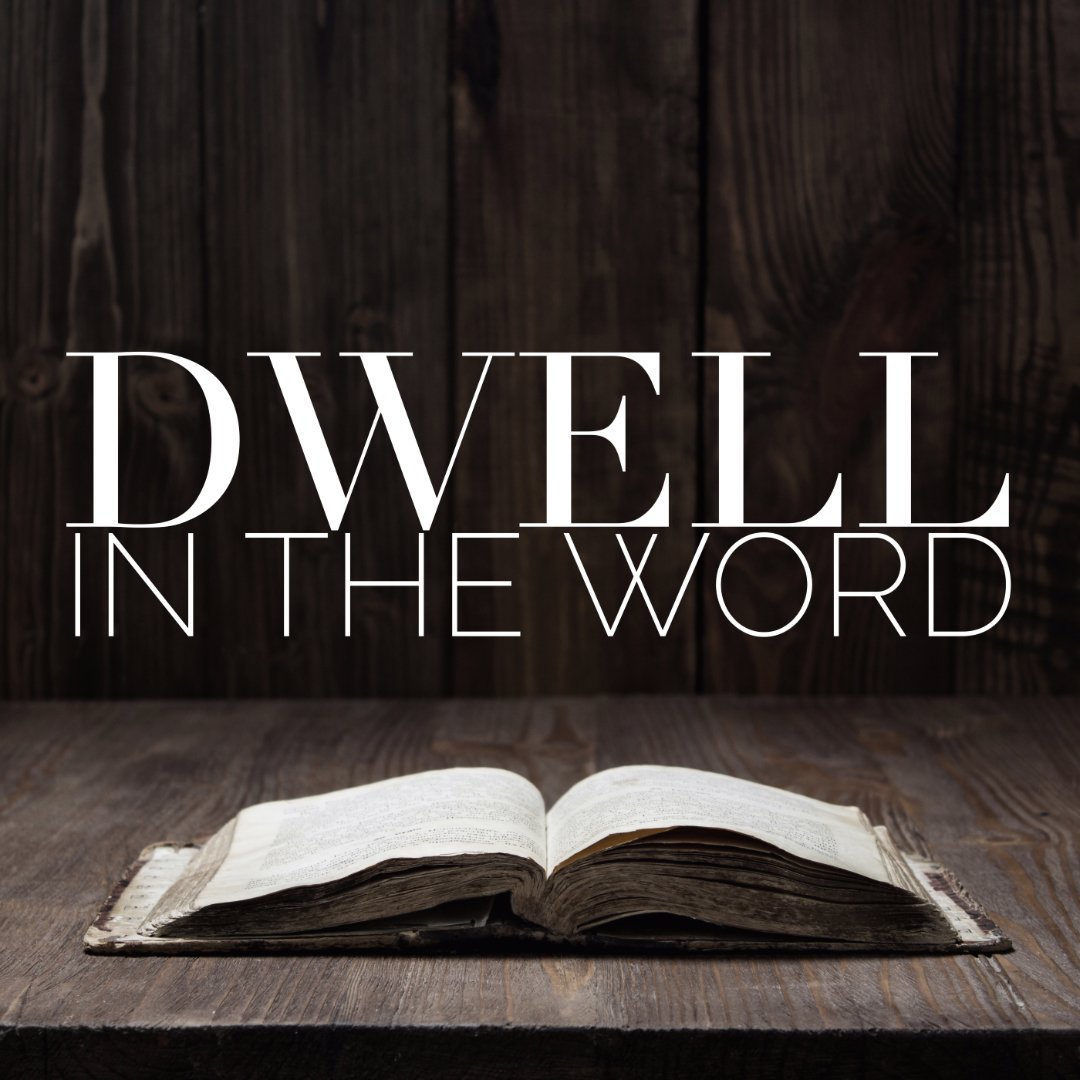
Dwell in the Word Joel 3:17-21
And so, as we come to verses 17-21 here of Joel 3, as this short book concludes, we see a really interesting conclusion to the book, and it's using contrast. And so as we look at this here, what we see is that the Lord says, You shall know that I'm the Lord your God, the one who dwells in Zion because Jerusalem is to be set apart and to be holy. And he gives some imagery here. In that day, the mountain shall drip sweet wine, the hills shall flow with milk, and all the stream beds of Judah shall flow with water. You see that there is plenty here, that there is abundance here

Dwell in the Word Joel 3:1-16
This is a pretty intense passage for some devotional thoughts to maybe start your morning or to think about as you head out into your day. This idea of judgment, this is intense stuff. In fact, you're coming across some stuff that is opposite of what you hear in other parts of scripture. If we look at verse 10 here, beat your plow shares into swords and your pruning hooks into spears. Instead of turning your weapons of war, where we see in other parts of scripture, into instruments for agriculture, you're doing the opposite. You're turning your instruments of agriculture into weapons of war. This is intense.

The Spirit Poured Out | Joel 2:28–32 | Dwell in the Word
Joel's prophecy of the Spirit being poured out on all flesh comes into sharp focus in the New Testament, especially in Peter’s sermon at Pentecost. In Joel 2:28–32, we find that God's saving grace is not limited to one people group. By His Spirit, He calls people from every tribe, tongue, and nation to Himself.
This passage reminds us that we are living in the days foretold by Joel—days of salvation, where everyone who calls on the name of the Lord will be saved. It’s a call to rejoice in God’s mercy and to proclaim that saving grace to others. The gospel is for all who will believe.

Dwell in the Word Joel 2:18-27
On Monday, we saw the call for repentance, and now God is responding to that repentance. And look what it says here. The Lord became jealous for His land and had pity on His people. Now, we hear that we're jealous and we think bad things, but doesn't God have a right to be jealous for the people that He has brought to Himself? Doesn't He have a right to desire that they desire Him? They are His people. He has paid for them. He has bought them. He has cared for them. He has created them.

Dwell in the Word Joel 2:12-17
Here we find this call to repentance, and it is a serious call. You may be familiar with verses 12 and 13 here. Here in our congregation, we use this as one of the scriptures for our call to confession. You may be familiar with it and what it's saying here. Look, yet even now, declares the Lord, return to me with all your heart. God is saying, Hey, you have a chance. These people are lined up at the borders. The locusts are ready to come. But yet, even now, return to me with all your heart. And notice what it says, With fasting, with weeping, and with mourning, and render hearts and not your garments. What does that mean? Well, when they were to be repentant, they would tear their clothes.

Dwell in the Word Joel 2:1-11
So, as we arrive at chapter two, we're reminded of what we saw in chapter one. What did we have? We had the impending judgment of God, and it was two things that we were looking at. We were looking at first, locusts who are going to come and devour the crops, and an army that was standing at the border waiting to attack. And so, what happens as this second chapter of Joel begins? Blow a trumpet in Zion, sound an alarm. In other words, this call to repentance that we saw in the first part of Joel is coming back. They're letting people know something is going to happen here. This is coming. This is the judgment of God.

A Call to Repentance | Joel 1:1–20 | Dwell in the Word
So, as I was reading that, you were probably thinking, gee, thanks for the pick me up, right? What a depressing passage we have here. But our goal here with Dwell in the Word is to go through different passages, to go through different books of the Bible, actually, and to read them in their context and experience them that way, because that is the way that they are intended to be. We don't want to jump around and we want to deal with texts that maybe aren't the ones we would normally really come to.
